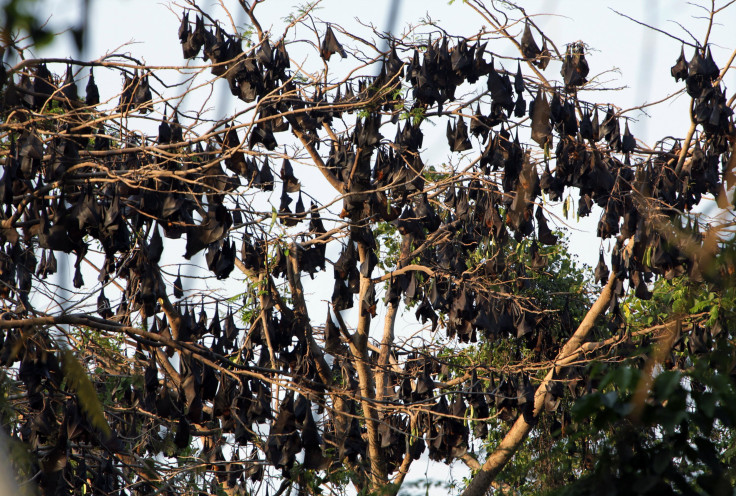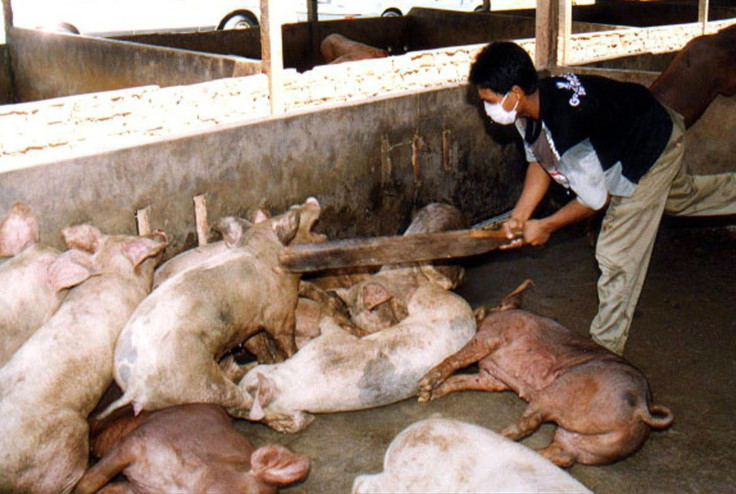Nipah Virus Outbreak In India: Everything To Know About Fruit Bat-Spread Infection

A deadly virus, first documented less than 20 years ago, is turning into an outbreak in India, where it has already killed at least three people in the southern state of Kerala. Another seven people are suspected of having died from the same viral infection in the state, and authorities are scrambling to control the disease’s spread.
Called the Nipah virus, it is listed by the World Health Organization as “a newly emerging zoonosis that causes severe disease in both animals and humans.” A zoonosis is a disease that animals can communicate to humans. The health problems it causes humans include severe respiratory issues, as well as encephalitis, or inflammation of the brain.
Onset of the first symptoms typically happens between five and 14 days of exposure to the Nipah virus (but can also occur months or even years after exposure), and include fever, headaches, sleepiness and disorientation. Within 1-2 days, the disease can progress to a coma. Even if a patient were to survive, there are long-term effects, such as persistent convulsions and changes to the personality, according to the Centers for Disease Control and Prevention (CDC).

The Nipah virus was first documented in 1998, when the first cases of human infection were reported from Malaysia and Singapore. At the time, the virus spread to humans from infected pigs, who in turn were thought to have been infected by fruit bats, which are natural hosts of the virus. Pig farmers in Kampung Sungai Nipah, Malaysia, were the first to be infected, giving the virus its name. Almost 300 infections were reported at the time, of which 100 patients died. No other cases have been reported since from Malaysia or Singapore.
Two other outbreaks were reported in 2001. One of them involved a different strain of the Nipah virus in Bangladesh, and the other was from northeast India, where the virus was recorded transmitting from person-to-person in a hospital setting for the first time. At least one of the recent seven deaths suspected to be caused by the virus in Kerala — that of a nurse tending to one of the confirmed three cases — was also likely a result of human-to-human transmission of the infection.
Instances of the Nipah virus in Bangladesh and India are frequent, the CDC said. Both the countries (along with several others in the region) are home to fruit bats, or flying foxes, members of the genus Pteropus, which are among the largest bats in the world. These flying mammals tend to contaminate the sap of date palm — which is commonly consumed raw — with infected excreta.
No vaccine has been developed yet to prevent infections from the Nipah virus, and the only treatment is limited to supportive care. For prevention, it is advised to stay away from bats and pigs in areas where the virus is endemic. A related virus, Hendra, has killed four people in Australia, of the seven who were infected.
Kerala, the Indian state currently facing the Nipah virus outbreak, is popular with tourists who go there for its sun-drenched beaches and therapeutic massages. The state’s Chief Minister Pinarayi Vijayan said on his official Twitter account the government was monitoring the spread of the virus.
Though the virus has been reported only in Kozhikode, a statewide alert has been given to remain vigilant. A 24-hour control room has been opened to monitor the situation. CM has also requested all to follow the instructions of the health department to tackle this crisis.
— CMO Kerala (@CMOKerala) May 21, 2018
© Copyright IBTimes 2024. All rights reserved.





















